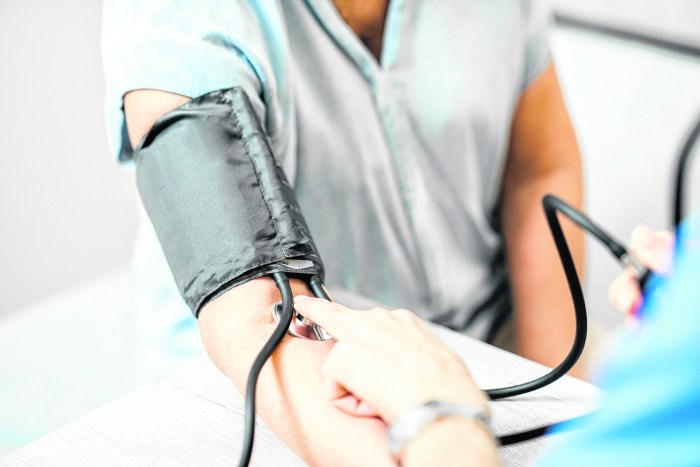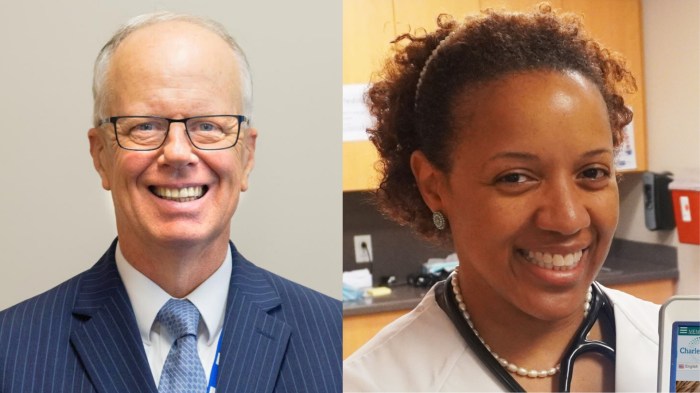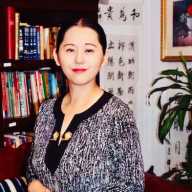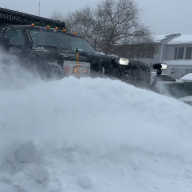Parking lots, the woods, shopping malls – all places you wouldn’t think of as a doctor’s office. Northwell, however, thinks differently.
The healthcare system is taking its care out of its hospitals and into the streets, serving the island’s homeless population at those locations and more with its Street Medicine Program.
“We go wherever they are,” said Mary Mahoney, the lead clinician for the program. “We’ll go to parking lots, if they’re living in their car. We’ll go to encampments. We go to the woods. Wherever they are, we’ll see them. The goal of this program is to meet people where they’re at.”
The healthcare system’s almost year-old Street Medicine Program, which provides the type of care associated with a primary care physician, works with the Long Island Coalition for the Homeless to locate and connect with unhoused Long Islanders who need healthcare.
Mahoney said the team, made up of around 20 physicians, nurses, and nurse practitioners, has carried out roughly 160 visits to over 70 patients so far. All care is provided completely free of charge by healthcare workers volunteering their time.
“We’re doing wound care. We’re treating clients with diabetes, cardiac conditions, asthma, high blood pressure – The typical things you would go to your routine doctor for,” said Mahoney, who’s also the vice president of Emergency Management and Clinical Preparedness. “Our goal is, instead of them going to the emergency departments for episodic care, we’re trying to get them into more continual care where we can help their health get a little better.”
They work to meet that goal, not only through on-the-ground healthcare but also by ensuring all patients have health insurance, referring some patients for in-network surgery or specialists, and supporting them in finding housing, employment, food, water and clothing.
She said the team ensures they have transportation to additional appointments, are aware of local food banks, have access to counselling, and provide them with small care kits equipped with water, socks, and toiletries.
“Our goal is to improve their health. And for us, health is more than just medicine,” Mahoney said. “Health is also making sure that they have a safe place to sleep, that they have access to food. It’s wrapping other services around them. It’s great and wonderful that I can give you medicine for your diabetes, but if you don’t have access to the right foods, the medicine is not going to fix your diabetes.”
Mahoney said the program has also helped patients write resumes, get business casual attire, practice interview skills and get jobs.
Recently, the program won the Community Health Improvement Award from the Healthcare Association of New York State
“The Street Medicine Program truly embodies the spirit of HANYS’ Community Health Improvement Award,” said HANYS President Bea Grause. “Health systems partnering with like-minded organizations, each one contributing their expertise to better serve their community — when we work together like this, so much can be achieved.”
Mahoney said the program and the recognition of the award remind her of why she went into healthcare.
“There was a reason that I chose nursing all those years ago – Because I wanted to make a difference for my community,” she said. “The award is saying just that, ‘Yes, you’re making that difference.’”

Mahoney said the idea for the Street Medicine Program initially grew out of their COVID vaccination program, which also worked to reach homeless Long Islanders.
“These communities really were not getting healthcare. We understood that they had limited access, so we thought it was really important that we brought healthcare to them,” Mahoney said of Northwell’s motivation to start the program. “We try to be a bridge for them, try to make them more comfortable and help them understand that it’s okay to seek care. We’ve become that first line for them.”
She said she hopes the program will continue to grow and serve more people as it develops over the coming years.
“We know there are so many more people out there that need the help, and so many more partners that we can work with,” Mahoney said. “We’re excited to see where this goes.”


































